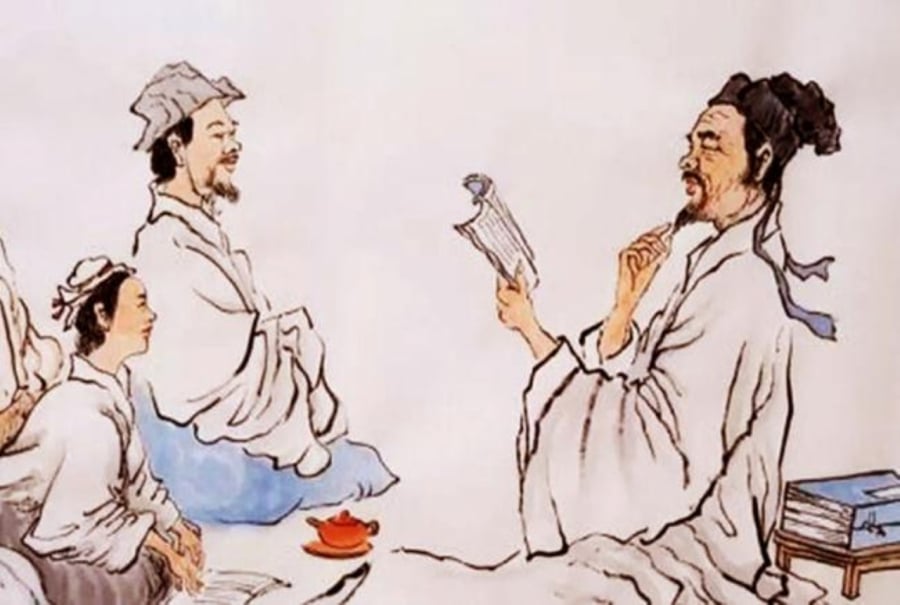1. Father teaches children to be virtuous and value human relationships
Moral cultivation is the first lesson that ancient fathers taught their children. In the past, acquiring knowledge was considered less important for children, something to be done in spare time. Education in morality, on the other hand, was deemed crucial.
In the past, even though education was highly valued, it was always subordinate to moral education. Ancient fathers knew that compared to rigid knowledge, the ability to discern right from wrong and the willingness to treat others with kindness and compassion were what determined the right path in life.

Illustration
2. Teach children to stay calm in times of peace and be frugal to avoid extravagance
Becoming a good person does not mean forgetting to use adversity as a way to teach ourselves. When living in abundance and prosperity, one should not forget the importance of simplicity and avoiding excessive desires.
Ancient fathers always taught their children the value of frugality, not only to teach them to cherish material wealth, but also to constantly remind themselves not to be complacent and lazy. Neglecting this would ultimately lead to the downfall of the family.
3. Teach children to always strive for education
Reading books is extremely beneficial for future generations. If children can commit to learning and bring honor to their ancestors, there is nothing more precious.
In the past, those who pursued education were highly respected. There are many ways to acquire wealth and prosperity, but it is the pursuit of etiquette, truth, and the ability to adapt that garners respect. Education is still an indispensable path to success.
Ancestral wisdom: “Small house, big wealth.” Why is that? Beware, danger lurks afar.
Many individuals aspire to construct large-sized houses as a way to showcase their affluence, to accommodate their growing families, and in some cases, to even borrow additional funds to build beyond their means. However, wise elders have often advised against the notion that having money means one must build a grand house.



































